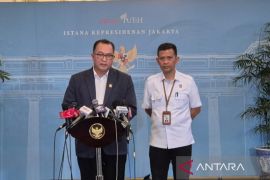Carbon trade is relative. The ones who benefit are two business entities conducting the transactionJakarta (ANTARA) - The implementation of carbon tax needs to be supported by other policies to reduce its social impact, especially on underprivileged people, an official from the National Research and Innovation Agency (BRIN) has said.
One of the impacts of carbon tax implementation is a rise in production cost, researcher from BRIN's Behavioral and Circular Economy Research Center, Raden Deden Djaenudin, informed.
This could reduce people's purchasing power and have a different impact on the poor and non-poor groups, he noted during the “Carbon Tax, Toward Innovation Era and Green Investment” webinar on Monday.
In fact, it is the poor who will be the most affected, he added.
Moreover, carbon tax could trigger a rise in fuel prices, which could increase companies' spending. Thus, entrepreneurs could optimize the efficiency of their companies, including by reducing their workforce.
Therefore, adequate regulatory support to reduce the social impact of carbon tax implementation is necessary.
Related news: Demand for green economy opportunity for Indonesia: BI
A lot of literature has cited examples of complementary policies to support the effectiveness of carbon tax policy implementation.
These include reducing tariffs, increasing the income threshold to prevent people from being taxed, or providing direct aid to the people.
During the webinar, Djaenudin also informed that the implementation of carbon tax will provide broader benefits compared to carbon trade.
"Carbon trade is relative. The ones who benefit are two business entities conducting the transaction," he explained.
The revenue from carbon tax can be utilized as a new source of income by countries in the form of capital for development and economic recovery after the COVID-19 pandemic.
Related news: Indonesia ready for full carbon trading system by 2025: official
The revenue from carbon tax should primarily be utilized for climate change mitigation activities, he advised.
These would include investment in renewable energy by funding wind, hydro, geothermal, solar, bioenergy, and biomass power plant projects.
Carbon tax revenue could also be utilized to promote tree planting and reforestation projects, encourage the implementation of Reducing Emissions from Deforestation and Forest Degradation (REDD+), and bolster conservation.
Related news: Carbon tax bolsters efforts to lower GHG emissions: BRIN
Related news: Carbon tax imposition put off till July 2022: minister
Translator: Martha H S, Fadhli Ruhman
Editor: Fardah Assegaf
Copyright © ANTARA 2022












